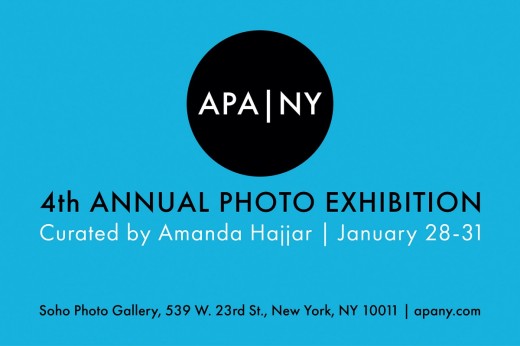Advocacy
Featured
The Visual Artists Associations Meet With Lawmakers, July 2017
APA National Executive Director, Juliette Wolf-Robin, joined the coalition of visual artists associations in DC on July 20th, 2017 for meetings with staffers and representatives to show support for copyright small claims legislation.
Association leaders and attorneys from American Photographic Artists(APA), Professional Photographers of America (PPA,) American Society of Media Photographers (ASMP), National Press Photographers Association (NPPA), Graphic Artists Guild (GAG), and Digital Media Licensing Association (DMLA), all were present to speak with one voice and show unity.
Last year the Copyright Office sent out several Notice of Inquiries on the challenges facing copyright owners. The visual associations responded to these inquiries, met with lawmakers, attended public hearings, and made recommendations. The purpose for our recent meetings was to review key language around the proposed Copyright bill in order to better protect copyright owners. We are also pushing for a process that would simplify the registration of copyright. Even though you do not need to register your work to have copyright protection, it is required in order sue for copyright infringement and be eligible for statutory damages. (Reminder to register your work https://www.copyright.gov/)
In December, Chairman Goodlatte and Representative Conyers released a joint statement on Reform of the US Copyright Office with support for a copyright small claims tribunal and IT upgrades. https://judiciary.house.gov/press-release/goodlatte-conyers-release-first-policy-proposal-copyright-review/
It is our hope that the Copyright Office will receive proper funding in order to improve their online registration system, make significant changes to simplify the copyright registration requirements, and put in place better protections for copyright owners.
in Copyright
Advocacy
Central to APA's mission is advocating for all members by amplifying our collective voices on the national stage keeping the profession dynamic, influential and strong. This section provides resources, expert analysis and best practices helping photographers better understand vital issues affecting our community.
Copyright Office Proposes Extended Collective Licensing Program
On June 9, the Copyright Office issued a Notice of Inquiry (http://copyright.gov/fedreg/2015/80fr32614.pdf) requesting public comments on the practical operation of an Extended Collective Licensing Program that the Office proposed in its most recent report on Orphan Works and Mass Digitization (http://copyright.gov/orphan/reports/orphan-works2015.pdf). According to the Office, the program “would enable users to digitize and provide access to certain works for research and education purposes under conditions to be agreed upon between rights holder and user representatives.”
The report recommends legislation limiting liability for the use of orphan works following a good faith diligent search for the copyright owner, similar to legislation passed by the Senate in 2008. The report also proposes the use of extended collective licensing for nonprofit educational and research mass digitization projects. The Office suggests a “pilot program” that would enable users to digitize and provide access to certain works for research and education purposes under conditions to be agreed upon between rightsholder and user representatives. To assist it in developing appropriate legislation, the Office is issuing a Notice of Inquiry contemporaneously with the Report, inviting public comment on various issues concerning the scope and administration of such a program.
Case Study: Agency Contract Bait and Switch
Article by David Robin
The Summary
We've all glanced over a seemingly benign document an art buyer or client has asked us to sign as a "formality", prior to beginning a project. Let's face it, it's becoming second nature to "agree" to wordy Terms of Use Agreements without reading them (think Facebook, Instagram and Tumblr). In fact many corporations, especially in the tech industry, are inappropriately utilizing the very same language found in their public online Terms of Use Agreement, in their assignment contracts as well. This case study might get you to think twice before placing your name on the dotted line without first reading and understanding what you're being asked to agree to.
I was recently presented with an interesting situation that unfortunately seems to be getting more common as corporations attempt to usurp ever-increasing rights while paying less in licensing fees and shifting all legal risks to the photographer.
An agency's art buyer sprung a last-minute legal document on me that, if put into effect, would have undermined all previously negotiated stipulations and left me relinquishing all rights to my images without compensation. It also required me to never bring a lawsuit against the client - a Fortune 500 global corporation - for any cause including negligence, infringement or defamation.
The Details
An art buyer whose agency represents a Fortune 500 global tech corporation had approached me to shoot several environmental portraits on location throughout the country. The art buyer indicated that they needed to license the images solely for their client's website on an exclusive, unlimited basis in perpetuity.
Production costs, nominal fees and terms were agreed upon and the shoot was set to begin the following week (as the deadline was tight). All that remained was for both of us to formally execute (sign) the contract.
Later that same day, however, the art buyer sent me a form to sign (indicating it was "just a formality") entitled: "Photographer’s License, Release, and Waiver".
Upon reading the first paragraph of the document, I found language that seemed to be pulled directly from the corporation's public online Terms of Use Agreement and was inappropriate for the project I was being assigned. I was surprised to learn that their Waiver actually undermined every stipulation (pertaining to licensing and indemnification) that all parties had agreed to in prior negotiations. The document went on to supplant the agreed licensing with an 'all rights, including sub-licensing, in-perpetuity' clause as follows: "I grant to and its subsidiaries, affiliates, licensees, successors, and assigns an unrestricted, sublicensable, assignable, irrevocable, perpetual, worldwide, royalty-free license to photographs, digital images, taken by me on behalf of (the “Content”).
By signing the agreement I would be handing over all rights to my images to this global corporation allowing it to re-sell licenses for profit without any further compensation to me. More over, the Waiver would have prevented me from approving how my images could be used or altered and from seeking legal remedies against the corporation as a result of any misuse. This was clearly an inappropriate over-reach and well outside of what we had agreed to or was needed for this assignment.
In response to and in consideration for their tight deadline, I sent the art buyer my contract as we had discussed and agreed along with a list of questions regarding the Waiver I was being asked to sign. I did this with the expectation that there typically is a dialog between the photographer and art buyer, especially when the parameters of a project have changed.
Unfortunately, this time things did not go as expected. Within a couple of hours, I received a note from the art buyer indicating that she was seeking another photographer for the project, as the Waiver was "non-negotiable" and she didn't have the time nor the inclination to discuss legal matters further.
There are many take-aways from this story. It instructs us first that it's imperative to read any and all contracts you are being asked to sign. And if you don't understand something in the contract, contact an attorney (APA has a great one). Be honest, straightforward and respectful in your dealings with clients. And if you need to have something clarified or need to ask a question of the person hiring you, do so respectfully and in the spirit of ensuring everyone is on the same page and expectations are managed on all sides.
Even if you do all these things with the best intentions, however, there may be times when, for reasons unknown, there is a lack of reciprocity from the person hiring you, such as in this case study. But remember that if a relationship starts out on the wrong foot and you are not feeling right about how you are being treated, it might be time to walk away as it usually only gets worse.
Now more than ever, it is important for all of us to hold the line on ethics in our industry to ensure our livelihood into the future.
I've provided a PDF of the Waiver I was asked to sign. Please pay special attention to the highlighted language as it is appearing more and more in contracts and should raise a red flag in your negotiations.
The APA National Business Manual
Business Manual
APA Business Manual
A guide to successful photography principles.
The APA Business Manual is an essential asset for professional photographers and assistants. It’s one of the many valuable resources provided by American Photographic Artists to the photographic community. The Business Manual is available to APA members and non-members alike. If you are not yet an APA member, we encourage you to join, but you can access the Business Manual at any time.
Quick Downloads
- APA Business Manual (complete) • 733 KB pdf file
- Estimate/Invoice Form • 94 KB excel file
- Photography Assistant Invoice • 49 KB excel file
- Job Change Order • 41 KB excel file
Also available is the option to download the Business Manual by specfic chapter or topic.
Estimating and Licensing • section download 789 KB zipped folder
- The Licensing Business Model • 153 KB pdf
- Licensing vs. "Buyout" • 177 KB pdf
- Writing a License • 151 KB pdf
- The Art of the Estimate • 210 KB pdf
- Estimating Checklist • 145 KB pdf
- Billing Terminology and Structure • 136 KB
- Work Made for Hire • 114 KB pdf
Forms and Lists • section download 833 KB zipped folder
- Estimate/Invoice form • 153 KB xlsx
- Job Change Order • 41 KB xlsx
- Terms & Conditions • 174 KB pdf
- Delivery Memo • 116 KB pdf
- Location Checklist • 120 KB pdf
Model Releases • section download 259 KB zipped folder
- Model & Property Release Forms Overview • 138 KB pdf
- Testing/Self Promotion Model Release • 128 KB pdf
- Model Release and Consent Agreement • 115 KB pdf
Assisting • section download 418 KB zipped folder
- Professional Assistant Manual • 153 KB pdf
- Effective Strategies to Get Professional Assisting Work • 107 KB pdf
- Assisting Guidelines • 138 KB pdf
- Photography Assistant Invoice • 45 KB xlsx
Copyright • section download 191 KB pdf
- Copyright Registration: Vital to Your Success • 146 KB pdf
- Photographer's Copyright Tutorial • 130 KB pdf
Working with Artist Representatives
- Rep Checklist • 114 KB pdf file
If you have any questions, please send an e-mail to membershiprep@apanational.com


